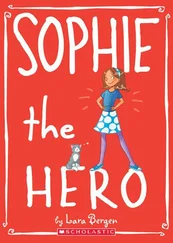Regina told all of this to Bob during the period of insatiable intimacy they had in the first couple of months of their relationship. They were cuddled against each other on the huge sofa in Bob’s apartment. They had been talking for hours; it had gotten late and the room had gone dark, but they didn’t bother to get up and turn on the lights.
“I still don’t know what it was,” Regina said. “Did she subconsciously want to punish me for trying to get away? Or was this a gift of freedom? She knew how much I needed freedom, but she understood that she wouldn’t be able to give it to me while she was alive. So she had to die.”
“Or maybe it was neither,” Bob said, stroking her hair. “She could’ve died because it was her time. People die. They don’t do it on purpose, and they don’t do it for somebody else.”
The swoosh that Bob’s fingers made when they went over her ears reminded her of the sound of the sea. It was amazingly soothing.
Bob said that Regina’s mother was actually very lucky to have died like that, at home, in her own bed, in the presence of her daughter. Most people he knew died in hospitals, hooked to machines, surrounded by strangers, rendered speechless by trach tubes — no last words there. When his father was dying, Bob’s older brother, Chuck, kept screaming at the doctors to “do everything,” to “use every fucking heroic measure!” They broke two of his father’s ribs performing CPR. Bob told her, “You can’t imagine how much he suffered.” Later, he recounted all that to his shrink, and the shrink sighed and said, “Yep. Death is not what it used to be.”
Bob had never loved his father that much, but his death devastated him. The man had been a driving force behind Bob’s many endeavors. The family legend was that when Bob’s father saw Bob for the first time in the hospital, he had winced and said, “He’s nothing like Chuck!” Chuck was already the best and the biggest student in his kindergarten class. He could count to one hundred and kick the ball far into the bushes. Bob’s shrink told him that in a way this made Bob’s life easier, because if you’re born as a disappointment there’s no crippling pressure to succeed. Perhaps he was right. Bob’s biggest aspiration was not to succeed but to live his life in a completely different way. Bob went to an East Coast university, moved to New York, aligned himself with liberal politics, entered the IT field, and married a difficult woman.
“I mean my first wife, honey,” he explained to Regina, “she was a real piece of work.” And Regina felt momentarily jealous. Was she less challenging, less interesting than Bob’s ex?
“So when my father died, I felt lost, perfectly empty, as if my life was stripped of purpose. I felt as if I had been living my life for my father, even if my main goal was to defy him. I think I felt depressed for about a year.
“When my mom died, it was different. I loved her more, and the pain of losing her was way, way more intense. Once, something reminded me of her smell — she had a very particular smell, clean and dry like freshly sawed wood — and I started to cry like a baby. She was very reserved. Loved to read more than anything else. Actually, you remind me of her a little bit.”
That’s alarming, Regina thought, but the tenderness of Bob’s tone reassured her.
“My mom wasn’t a very warm person. I don’t think she ever kissed us unless we were sick. I used to believe that her kisses were a legitimate medical solution. Once I had a fever in school and the nurse gave me some aspirin, then later asked me if I was feeling better. And I said, ‘No! My mother didn’t kiss me!’ ”
“Bob, honey!” Regina said.
“Yes, I was very sad when my mother died, but I wasn’t devastated. It wasn’t as if my life stopped, which was how I felt when my father died. But the real horror reached me a few months after her death. I was at a dinner party with my old friends. Everyone’s in their late forties just like me. And then it hit me that I was the only person in the room with both parents dead. There was nobody between me and death anymore. No protective layers. I was next in line. I’ve never felt more scared or exposed.”
Bob had slid down and was lying on the sofa with his head in Regina’s lap. Regina leaned down to kiss him and her hair fell over his face as if to shield him from the horror, to create that protective layer he was seeking. She felt an affection for Bob swelling inside her, pushing against her rib cage, hurting her.
That memory never failed to move her. “Bob, sweetheart,” Regina said out loud, looking in the direction of the Hudson.
A baby’s cooing broke into Regina’s reverie.
“Now look at the nice lady! Is that a nice lady? Yes, it is! Yes, it is! Let’s wave to her.”
Regina turned to her right. On the next terrace over, there was a woman with a baby in her arms. Theirs would be the perfect neighborhood if it wasn’t for all the kids. Everybody seemed to come there to have a child. The woman was swinging the baby’s little hand so it would appear that the baby was waving to Regina. Regina gave the baby and the mother a Soviet-style young pioneer salute, picked up her empty cup, and headed inside.
Regina closed the balcony door behind her and walked over to the bookshelves. They had a whole wall of built-in shelves — Bob had installed them as a wedding gift to Regina, to house the books she’d brought from Russia. Old editions of Russian poetry, her mother’s translations, all the European classics, Soviet relics — like a samizdat copy of Solzhenitsyn. But there were also several shelves devoted to the American books she’d been meaning to read ever since she moved to the U.S. The novel Infinite Jest had the most handled cover, because this was the book she’d made the most attempts to read. Every time Regina opened it, she would be knocked out by its sheer brilliance. And the language! Reading Infinite Jest was such a powerful experience for Regina that she couldn’t read more than a few pages without stopping to take a rest. A long rest. More often than not, Regina wouldn’t resume reading it for months. But that book wasn’t the only one that presented a problem. There were shorter, less draining books on her shelf that didn’t fare much better. Claire Messud’s The Emperor’s Children. Joseph O’Neill’s Netherland. Back in Russia she would have finished novels like these in a couple of days. She traced her fingers over their worn-out spines, pulled out Infinite Jest, and sat down on the sofa trying to summon the energy to start reading. The energy refused to be summoned. Regina remembered that she hadn’t had breakfast yet. Breakfast should help! she thought, leaving the book on the sofa and walking into the kitchen.
She wouldn’t eat a big, distracting breakfast. She wasn’t even hungry. She would just drink some more coffee — enough to give her the necessary energy for reading — and reward herself with food after she had finished a certain number of pages. She made herself a fresh pot of coffee. The coffee was good. In fact, it was so good that it would be a shame to consume it quickly. Regina put the coffee on a tray and carried it to the living room. She placed the tray on the coffee table, sat down on the couch, and clicked on the remote. Now what would be the perfect show to watch while drinking coffee? She knew where to get her answer. She had an app, this secret piece of joy that she had hidden from Bob on her phone. The problem was that the idea for the app had been Bob’s young assistant’s. He had pitched it to Bob and Bob had rejected it on the spot. More than that, Bob had laughed at it. Well, the assistant had gone ahead and pitched it to somebody else, who had developed it, and the app had became incredibly successful. Bob was still reeling. “I’ve misjudged the American consumer,” he liked to complain. “We are even lazier and more stupid than we think we are.”
Читать дальше












